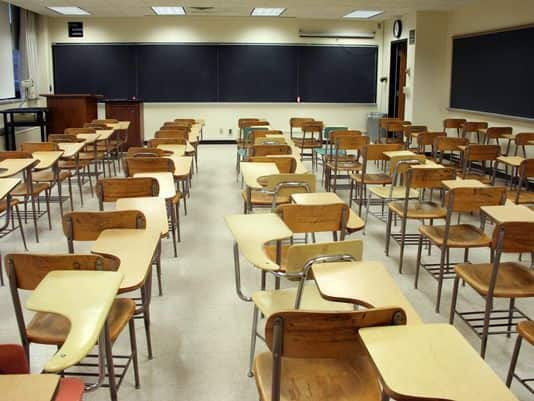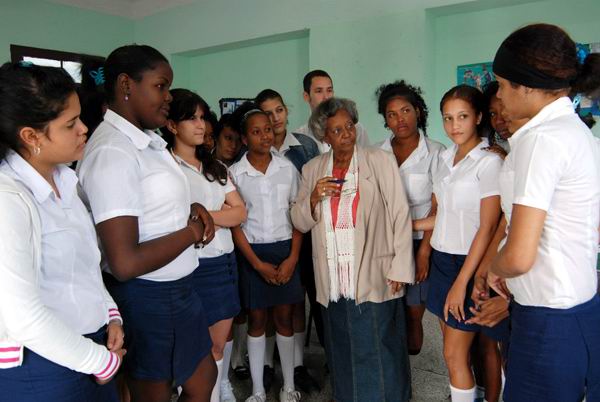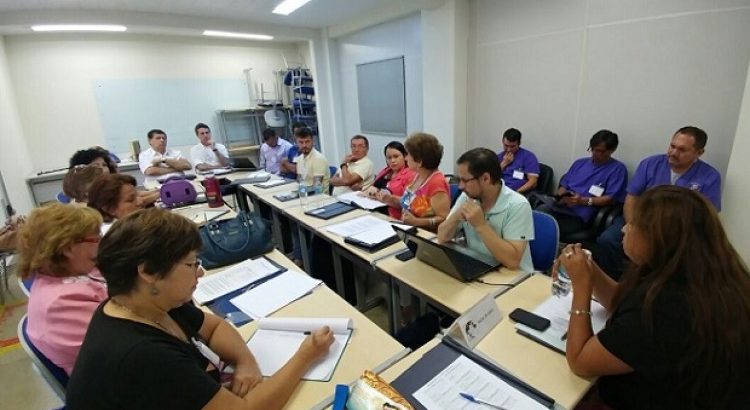Estados Unidos/Febrero de 2017/Fuente: The Detroits News
RESUMEN: Un nuevo análisis de los resultados de una prueba nacional de educación muestra a los estudiantes de Michigan, quienes continuamente han desmejorado las puntuaciones a nivel nacional desde 2003. El estudio, realizado por el profesor de la Universidad de Michigan Brian A. Jacob, sobre las puntuaciones de la Evaluación Nacional del Progreso Educativo (NAEP) de los estudiantes de Michigan, encontró que estaban en la parte inferior de la lista. Este análisis se produce en menos de seis meses después de la publicación del informe Talent Crisis del Michigan por Education Trust-Midwest que encuentran que los estudiantes de Michigan están cayendo muy por detrás de sus compañeros de todo el país.
A new analysis of results of a national educational test shows Michigan students have continually made the least improvement nationally of scores since 2003.
The study, by University of Michigan professor Brian A. Jacob, of scores of the National Assessment of Education Progress (NAEP), also found that Michigan students were at the bottom of the list when it comes to proficiency growth in the four measures of the exam.
That analysis comes less than six months after the release of the Michigan’s Talent Crisis report by Education Trust-Midwest that found Michigan’s students are falling far behind their peers across the nation. The ETM report found that Michigan is in the bottom 10 states for key subjects and grades, including early literacy.
Both analyses looked at data from NAEP and rank states on their academic achievement and growth, said Sunil Joy, assistant director of policy and research at non-partisan Education Trust, in an email. “However, Jacobs’ analysis also incorporates factors like state size, population density, median household income and others.”
“Even when controlling for these factors, Michigan still fares poorly,” Joy added.
Michigan “makes the bottom 10 list on all four measures, and ranks dead last in terms of proficiency growth since 2003,” said Jacob, who prepared the study for the Brookings Institution.
According to the NAEP results, in 2015, the average math score of eighth-grade students in Michigan was 278 out of 500, compared to the national average score, 281. The average Michigan score has not significantly changed from 280 in 2013 and 277 in 2000.
In that year, the average reading scores of eight-grade students in Michigan matched the national average of 264 out of 500, while the science scores of eight-grade students in Michigan was slightly better at 154 out of 300 than the national average at 153.
Jacob’s analysis found that 29 percent of Michigan students performed at or about the “proficient level” on the NAEP exam in 2015. Those results were not significantly different from the 30 percent found in 2013 and the 28 percent recorded in 2000.
NAEP officials produce an annual Nation’s Report Card to inform the public about the academic achievement of elementary and secondary students in the United States. Sponsored by the U.S. Department of Education, NAEP assessments of reading, mathematics, science, writing, U.S. history, civics, geography, and other subjects have been conducted periodically since 1969.
The NAEP testing, which collects and reports academic achievement at the national level, began collecting some assessments at the state and district levels in 1969. The test’s results are a barometer of the condition and progress of education.
Education officials have compared the NAEP results with scores from Michigan’s Michigan Student Test of Educational Progress, or M-STEP, testing program, as one measure to the state’s students performances. The M-STEP testing last year found that with the exception of fifth-grade English and 11th-grade English, less than half of Michigan’s students reached proficiency in core subjects.
Jacob said the two tests are similar in content and format, though not identical.
“We should care about the NAEP because it is a very good exam that measures important knowledge and skills, and does so very well from a technical perspective,” he said. “And, more importantly, the NAEP is common across states, so it allows us to compare ourselves to other states, both at one point in time and in terms of change over time. The M-STEP does not.”
In his report to the Brookings Institute, Jacob wrote: “It is clear that several states stand out as having particularly weak performance as measured by the NAEP. Several poor, and historically low-performing states such as Alabama and West Virginia appear multiple times. But we also see historically higher-achieving states that have made little progress over the past decade, including Connecticut.”
Proficiency vs. spending
Jacob, a nonresident senior fellow at the Brookings Institute, said there is no single explanation of the Michigan rankings.
“I believe that there are a number of factors responsible for Michigan’s weak performance: a lack of adequate state and local funding for schools, the highly decentralized nature of governance that makes it difficult for the state Department of Education to develop coordinated reforms, the lack of regulation and accountability in the charter sector, and the economic and political instability that have plagued Detroit and other urban areas in the state,” he said.
“Another reason is the relatively decentralized nature of education in Michigan,” he added. “The long tradition of local control in the state has made it harder for the state Department of Education or others to establish coordinated policies.”
Jacob said those factors particularly affect Detroit. “The political and financial instability of Detroit over the past decade or two undoubtedly had a major impact on student performance in the city and surrounding areas,” he said.
Several education experts and government officials expressed alarm at the findings and offered several explanations.
State Rep. Tim Kelly, R-Saginaw Township, chairman of the House Education committee, dismissed arguments that lack of funding in the schools is a factor in the results.
“Michigan is one of the highest spending states in terms of educating students,” Kelly said Wednesday in a telephone interview. “If you look at local, federal and state, it’s about $10,000 or more per pupil.”
Kelly contends that there is “no direct correlation between proficiency and spending.”
“There is a silly correlation saying just because you throw money at the problem, things will get better,” he said.
Kelly pointed to several initiatives several state districts are implementing, including a focus on third-grade reading and early childhood investment. He said the solution is to focus on issues at the building level “with all hands on deck from the janitor to the principal.”
Seizing opportunities
Gov. Rick Snyder admits there is room for improvement in educating the state’s students, spokeswoman Anna Heaton said, “which is why he is continuing increased investments in K-12 education.”
Heaton added: “For the upcoming budget cycle, the governor recommended an additional $50-$100 per student, with $150 million additional for at-risk students. This would be the seventh consecutive year of increased funding.
“The governor also convened a 21st Century Education Commission to thoroughly assess our current educational system and make recommendations for improvement,” she added. “Their report is expected within the next month.”
A spokeswoman for the Michigan Department of Education said there is work to do.
“Because the NAEP is not aligned to Michigan’s content standards, the M-STEP is our benchmark of measuring Michigan’s success in improving education,” MDE spokesman William Disessa said. “We all have work to do to improve academic performance. The NAEP is one of the measures being identified in making Michigan a Top 10 state in 10 years. By improving outcomes on Michigan’s assessments, we expect that to be reflected on the NAEP, as well.”
While Detroit Public Schools Community District officials would not comment on the Brookings report, Madison Public Schools superintendent Randy Speck said further examination of the state’s education system is warranted.
“Michigan has lost opportunity after opportunity to be a leader in education because there has not been a concerted effort in funding, strategy and overall outcomes,” he said. “By pushing all districts to focus on college-ready, we lost the opportunity to be a national leader in training students for ready-made careers in advanced and modern manufacturing.”
By focusing on accountability scorecards, “we lost opportunities to blend in computer science and coding options for students,” Speck said.
“And because we were focused on penalizing the worst schools with the highest poverty and obstacles to overcome, we forgot there were real children with real needs who needed to be educated,” he said. “Although money in an equitable manner is desperately needed in Michigan, what is truly needed is the understanding that there is zero urgency.”
Fuente: http://www.detroitnews.com/story/news/local/michigan/2017/02/20/michigan-test-score-gains-worst-nation/98144368/














 Users Today : 89
Users Today : 89 Total Users : 35419579
Total Users : 35419579 Views Today : 112
Views Today : 112 Total views : 3353784
Total views : 3353784